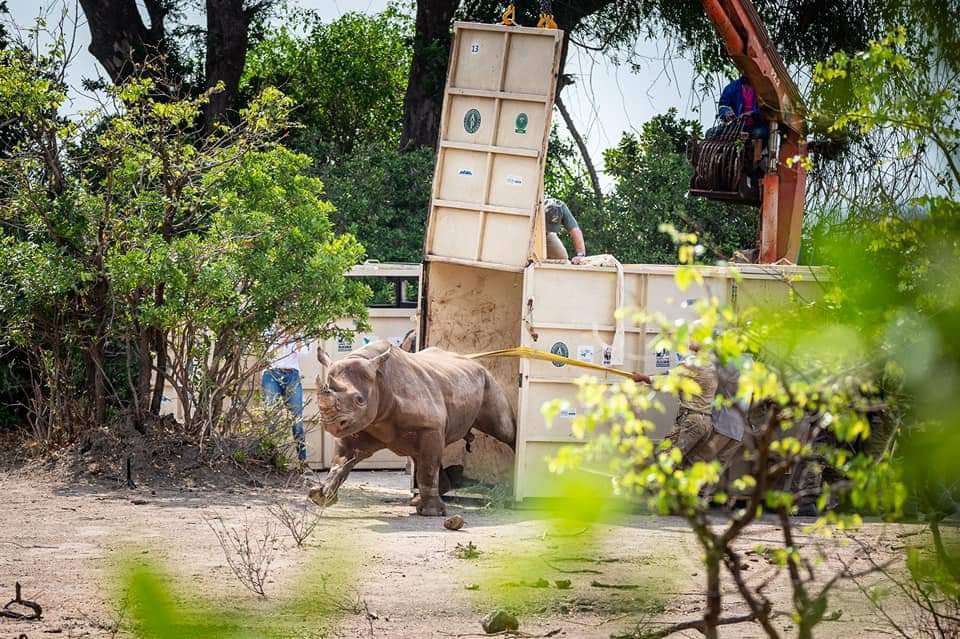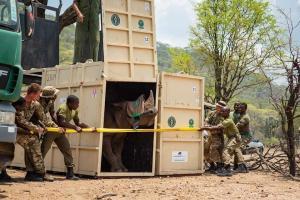
Liwonde National Park in Malawi is now home to 17 rhinoceros from South Africa following one of the largest international black rhino translocations to date.

The wild animals which were transported from South Africa on Monday, have all successfully been released into the park.
Speaking at the Release and receipt Site of the animals from six containers in the Liwonde National Park in Machinga, Minister of Natural Resource Energy and Mining and Mining Binton Kutsaira said the coming in of the animals was a clear testimony of the existing cordial diplomatic relationship that continues to flourish between the two countries.
He hailed African Parks for facilitating translocation of the animals in live state into Malawi from South Africa by air which he said was no mean achievement.
Kutsaira also commended the Department of National Parks and Wildlife and African Parks for its tireless efforts in strengthening the relationship that continues to exist between the department and African Parks in the sustainable management of wildlife in game reserves and national parks as this is one way of promoting tourism in Malawi.
He then strongly warned poachers against any malpractices saying the long arm of the law will catch up with them and where possible others losing their dear lives in the process.
Speaking at the same Site, African Parks manager for Malawi Craig Reid, thanked the government of Malawi for according his organization full support in the management of all wildlife reserves of Majete, Liwonde and Nkhotakota.
He also commended governments of South Africa and Malawi for their continued passion for providing safety nets and promotion of wildlife through wildlife conservation.
The translocation exercise was carried out in conjunction with WWF South Africa, Malawi’s Department of National Parks and Wildlife (DNPW), and Ezemvelo KZN Wildlife.
The rhinos were quarantined in KwaZulu Natal, South Africa, for six weeks before being flown to Lilongwe, and were driven over eight hours to their new home – Liwonde National Park – where they were all released yesterday.
According to African Parks Chief Executive Officer Peter Fearnhead, the aim of the translocation is to bolster Malawi’s existing rhino populations and to support regional efforts to conserve this critically endangered species.
“We are also moving two of Liwonde’s existing rhinos to Majete Wildlife Reserve today, as well as moving another rhino from Majete to Liwonde, all in an effort to improve genetic diversity in these two parks and create a healthy population of rhinos for Malawi,” Fearnhead said.
He added that there are fewer than 5,500 black rhinos remaining in the wild hence translocations to well-protected areas are essential in providing for their long-term survival.
“This is an extremely hopeful endeavor for rhinos, where we are able to go to extreme efforts to supplement secure rhino populations,” he said.
To protect the animals, African Parks has taken extensive measures including aerial surveillance, daily ranger patrols and the integration of the most advanced technology to enable their live-time tracking.
Each rhino has been fitted with a new GPS sensor device provided by Smart Parks, allowing teams to accurately monitor their activity and location 24 hours a day.
The coming in of the 17 rhinos from South Africa follows an MOU signing ceremony between the two governments on collaboration, management and protection of animals.













